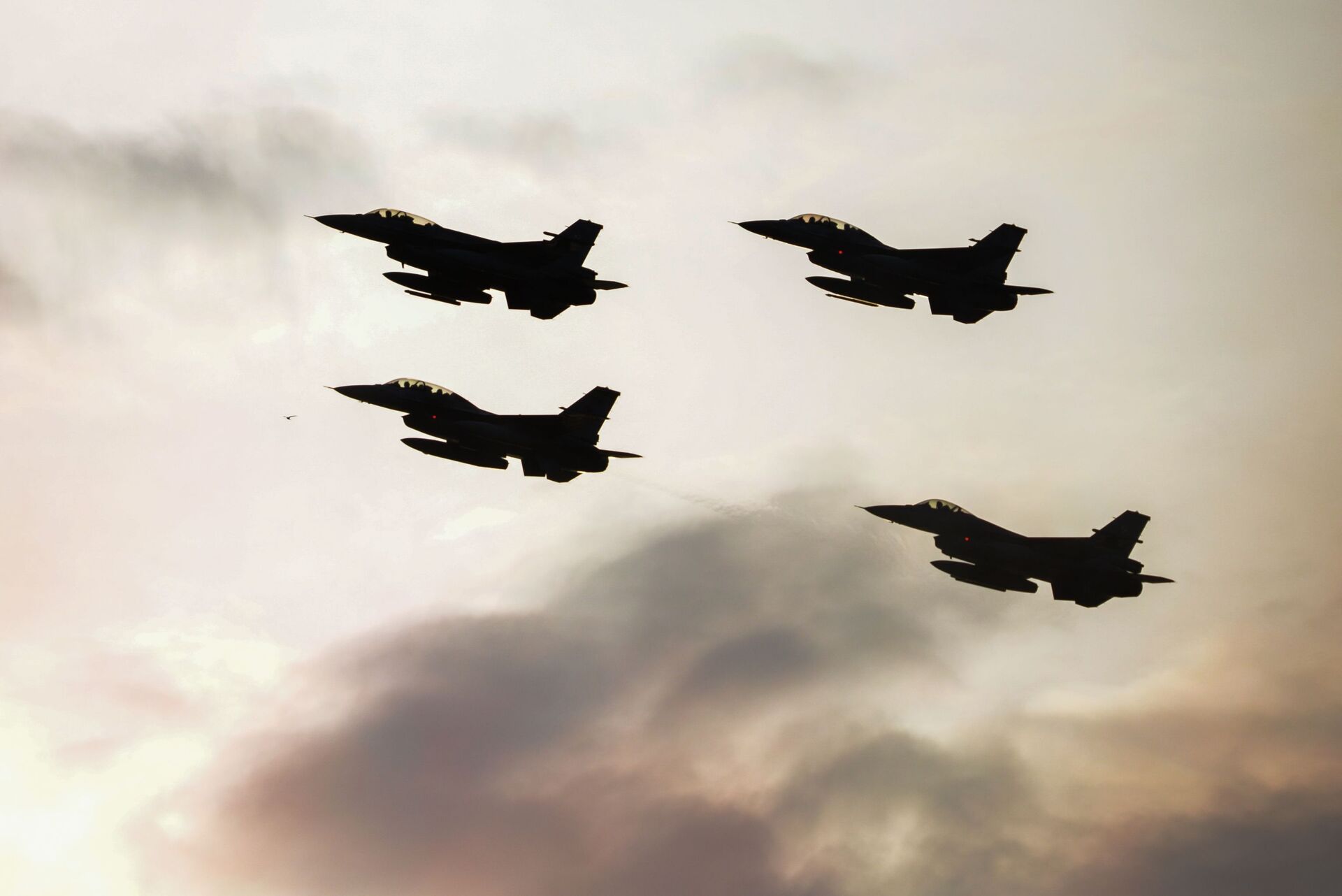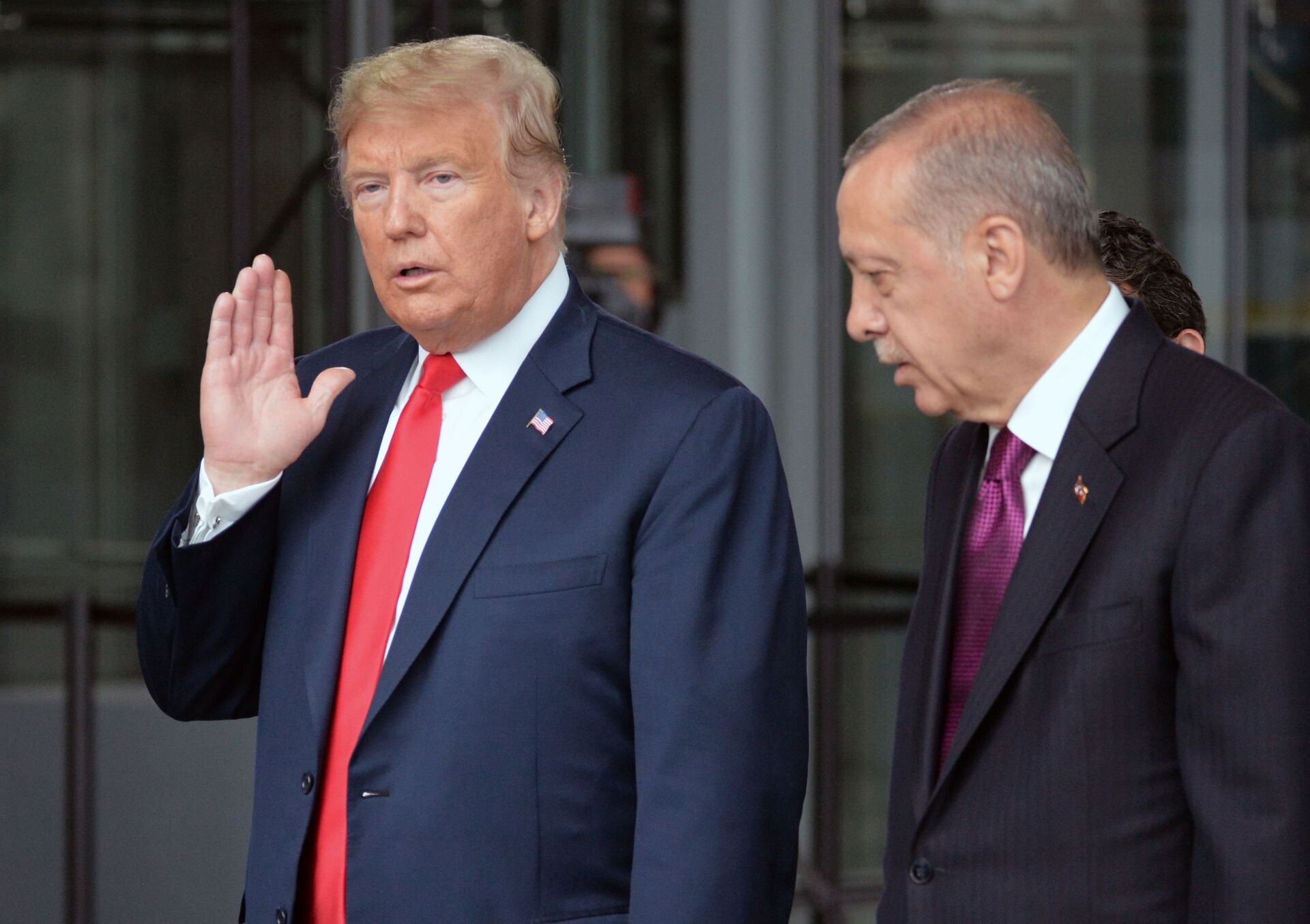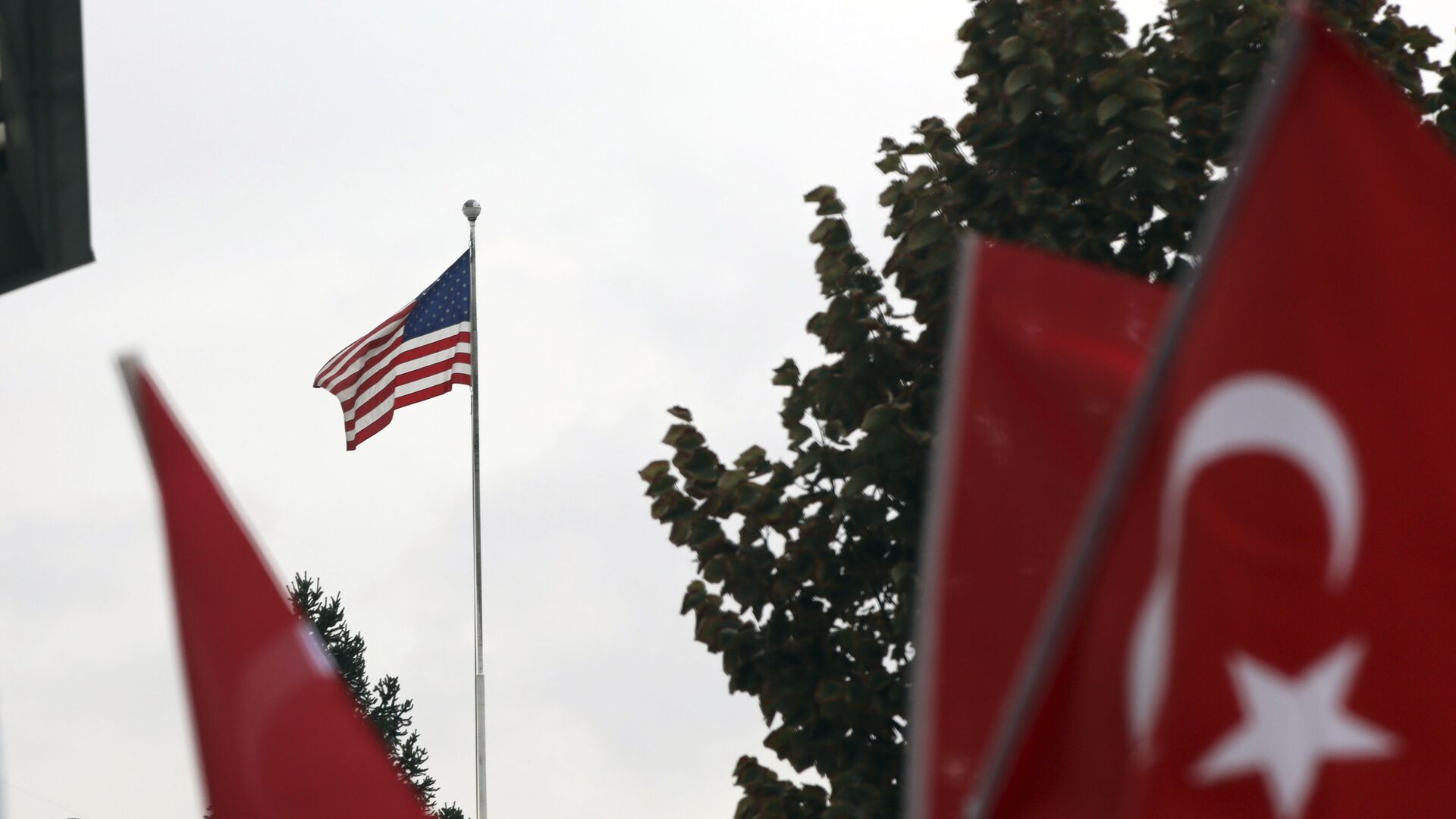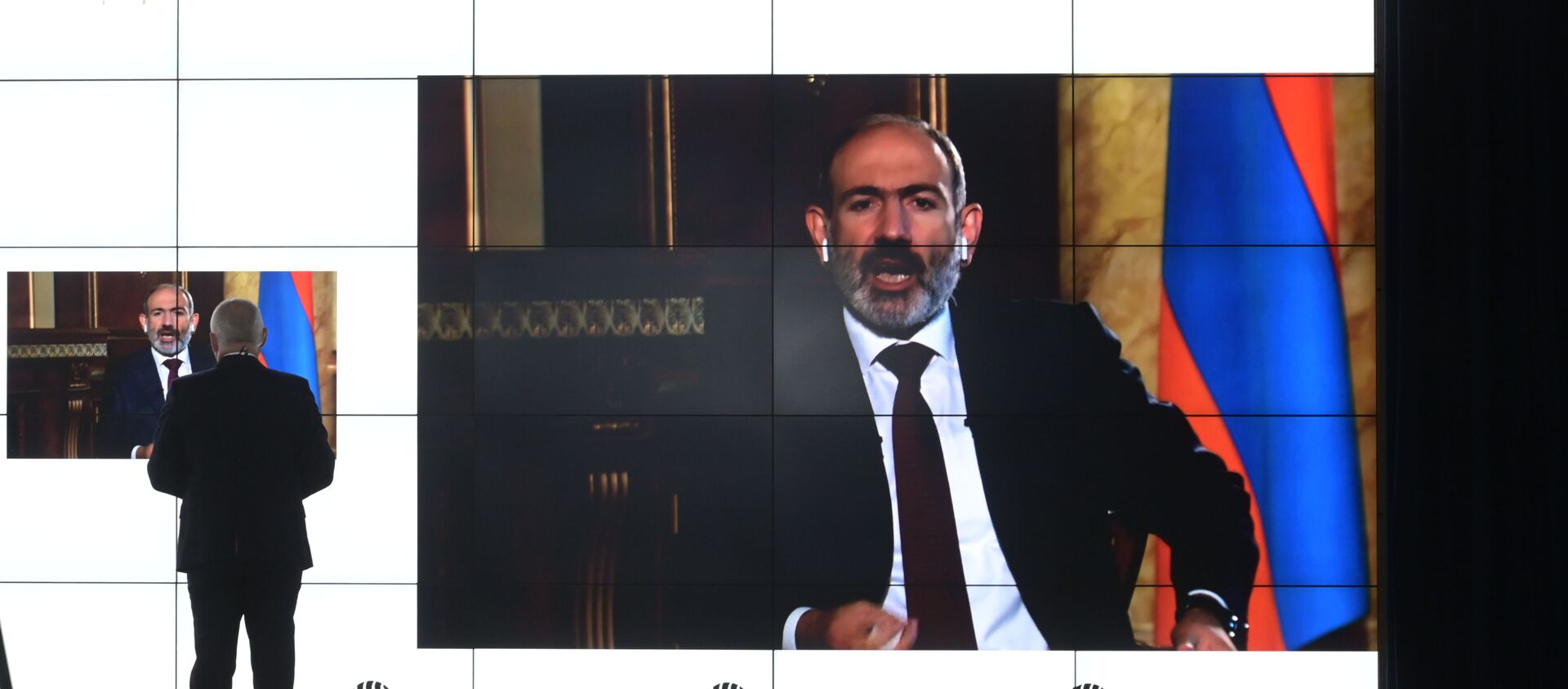US President Joe Biden's statement recognising the genocide of Armenians in the Ottoman Empire was tied to the 106th anniversary of the perceived start of the tragic events and did not come entirely out of the blue due to the plethora of media reports forecasting the announcement.
BREAKING: Statement by President Joe Biden Recognizing Armenian Genocide.
— Joyce Karam (@Joyce_Karam) April 24, 2021
Historic statement by US President joining 29 nations in calling atrocities a Genocide (line 3). Full statement: pic.twitter.com/3fydB6gcWT
Despite that, the fact that he actually did it was partially surprising since the US has long resisted recognising those tragic events as a genocide despite the protracted efforts of Armenian lobbyists. While Biden declared he would do so in his election promises, he would have not been the first POTUS to break such a promise, if he did not. Former US President Barack Obama also vowed to recognise the Armenian genocide in 2008, but failed to do so over the next eight years.
So, what has changed and why has the US up to now refused to recognise the Armenian genocide?
How It All Started
The events, which the US now officially considers a genocide, started in 1915, when Turkey's predecessor, the Ottoman Empire, initiated a new policy towards Armenian-populated territories which resulted in deportations, starvation and the killings of around 1.5 million Armenians.
The Armenian survivors and their descendants decided not to let the memory about the events fall into oblivion and have campaigned and lobbied since the 1960s for foreign governments to recognise the genocide. Even though this campaign was waged as the horrors of the Holocaust were still fresh in popular memory, they never prompted the official recognition of the Armenian genocide by Washington.
The US never explained why it refrained from listening to the calls of the Armenian diaspora, as well as the accounts of American missionaries, who saw what was happening in the Ottoman Empire, where they had been actively helping Armenian survivors. The US even put these tragic events in one row with Nazi atrocities, calling it "Turkish massacres of Armenians" in a written statement to the International Court of Justice in 1951.
In the meantime, relations between the governments of the US and newly-established Turkey were growing stronger each year between the two World Wars of the 20th century.
Friend in Need?
Arguably, the most likely reason for the US to "forget" the term was that Turkey always painfully reacted to any attempts to label the events, which unfolded early in the 20th century, as a genocide by foreign governments. Turkey insists that the harsh policies of the Ottoman Empire were not meant to target Armenians, but were a government response to an uprising, which purportedly killed many Turks.

At the same time, Ankara became a valuable NATO ally to Washington in its confrontation with the USSR as a part of the Cold War. Turkey even hosted American nuclear armament at some point as a part of NATO's deterrence against the Soviet Union.
Ankara joined the North Atlantic Treaty in 1952 in the light of growing territorial tensions with the USSR, specifically in regards to the Turkish Straits, as well as seeking protection from possible plans by the Soviet Union to expand its influence in Turkey.
Always a PreText to Say 'No' to Recognition
Despite the lack of official recognition, occasionally Washington would use the term genocide when referring to the 1915 Armenian killings in the Ottoman Empire. A Republican US president, Ronald Reagan, once described the tragic events as genocide in an April 1981 speech and the US House of Representatives adopted several resolutions memorializing the genocide even in during the Cold War.
The need to tiptoe around Turkey seemingly disappeared with the end of the confrontation with the USSR, but despite that, no significant moves were made until at least December 2019, when Congress officially recognised the genocide. The 2019 move did not spark a major uproar in Turkey because the previous US president, Donald Trump, did not join the recognition effort.

A desire to recognise the Armenian genocide existed on Capitol Hill even at the end of the Cold War. An anonymous congressional staffer shared in an interview with the New York Times in 1989 that there was "sympathy" for the Armenian people among lawmakers, but Congress had to be "prudent also to focus on the implications of [recognising genocide]".
In 2008, US President Barack Obama promised to recognise the genocide during his election campaign, but never did it in the course of his eight years of presidency. His deputy national security adviser, Ben Rhodes, revealed later that "every year there was a reason not to" announce the recognition.
"Turkey was vital to some issue that we were dealing with, or there was some dialogue between Turkey and the Armenian government about the past", Rhodes elaborated on various pretexts taken to avoid the announcement on recognising the genocide.
There was at least one reason for the Obama administration not to spoil relations with Turkey – its help with the fight against a critical security threat at the time – Daesh*. This, however, never stopped some US allies in recognising the killings as genocide – as did Germany in 2016, and the Netherlands and Belgium in 2015.
Another possible cause for US concern was Ankara's participation in the development and later construction of the modern F-35 jets, which ended in 2019 after a major spat between Washington and Ankara. The same year when both chambers of Congress passed the bill recognising the brutal events as the genocide of Armenians.
So Why the U-Turn?
When Biden announced the official recognition by the US of the Armenian genocide he did not elaborate on the timing – over 100 years after the events began to unfold. Political commentators offer a number of reasons, and one of those most mentioned is an overall deterioration of ties between Washington and Ankara.
It all started with Turkey's decision, which it defends as sovereign, to buy Russian S-400 air defence missile systems following the US refusal to sell Patriots. The US strongly advised Ankara against the deal, but the administration of the nation's president, Recep Tayyip Erdogan, proceeded anyway. As a result, Washington booted Turkey out of the F-35 programme entirely and slapped it with economic sanctions.
Ankara's conduct in the conflict over offshore oil exploration around Cyprus in the eastern Mediterranean and the country's behaviour in the Levant region, including Syria, also reportedly prompted Washington's discontent. US Secretary of State Antony Blinken accused Turkey of "not acting like an ally".
It is also possible that Armenian lobbyists used the recent armed conflict between Armenia and Azerbaijan over the disputed Nagorno-Karabakh region as leverage to convince some politicians in Washington to change their minds. Turkey supported Azerbaijan in this conflict, reportedly supplying it with deadly drones. The then-Armenian Prime Minister, Nikol Pashinyan, claimed that Turkey's actions in the region are aimed at continuing the genocide, which began in 1915. Pashinyan was among the first to hail Biden's move to recognize the killings as a genocide as an important victory for Armenians and Armenia's security.
*Daesh (also known as IS or the Islamic State) is a terrorist organisation banned in Russia.






